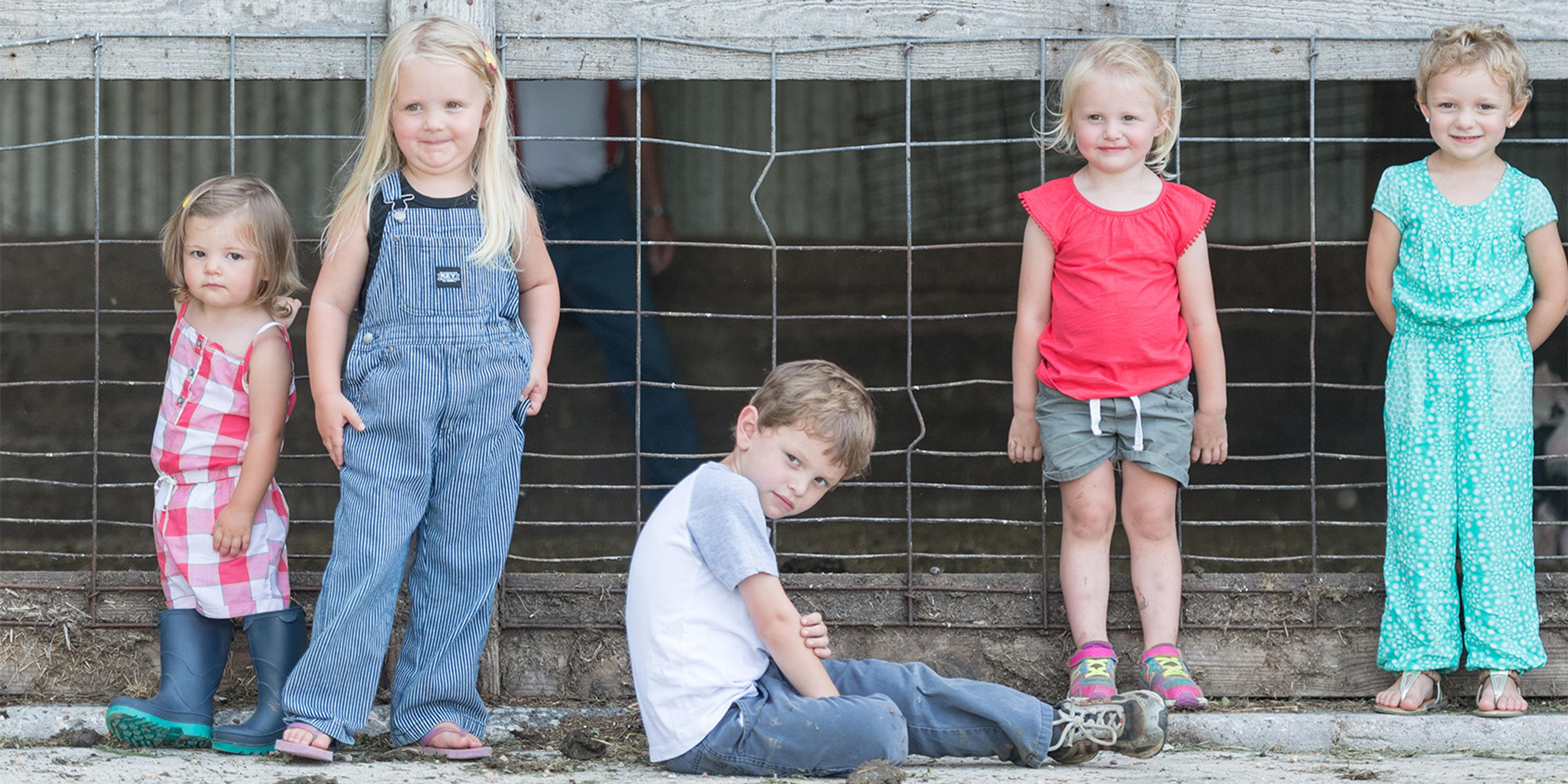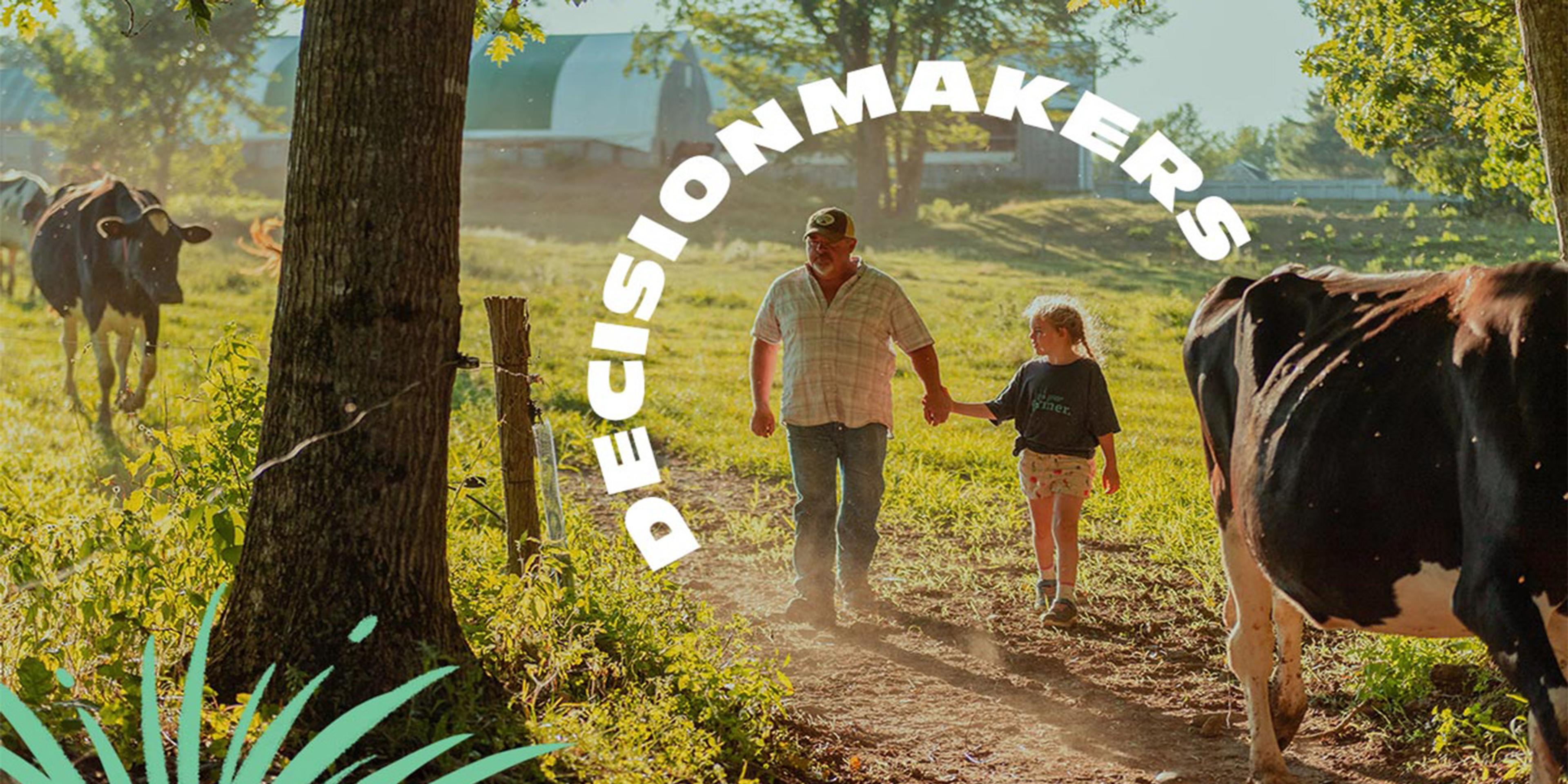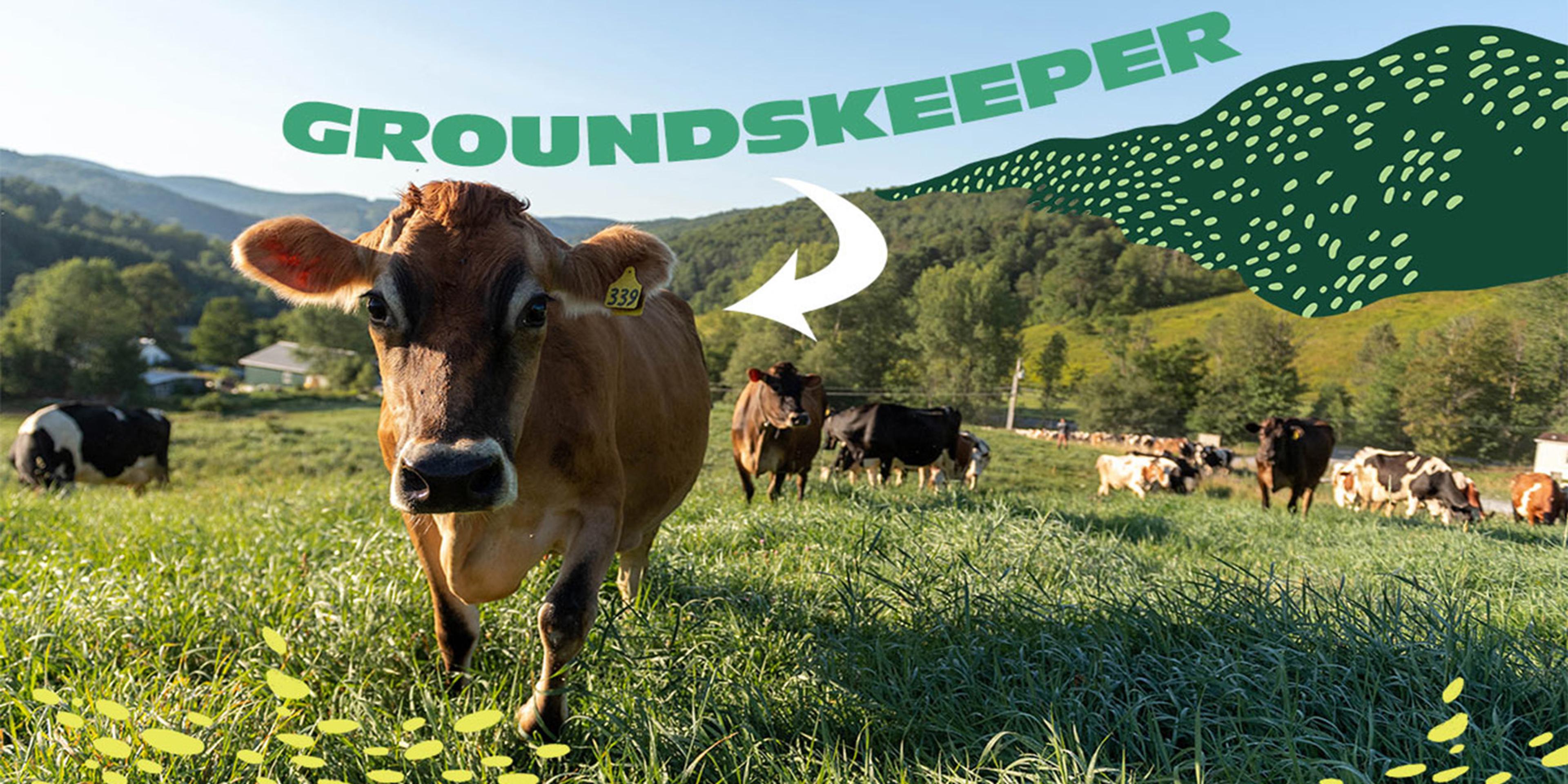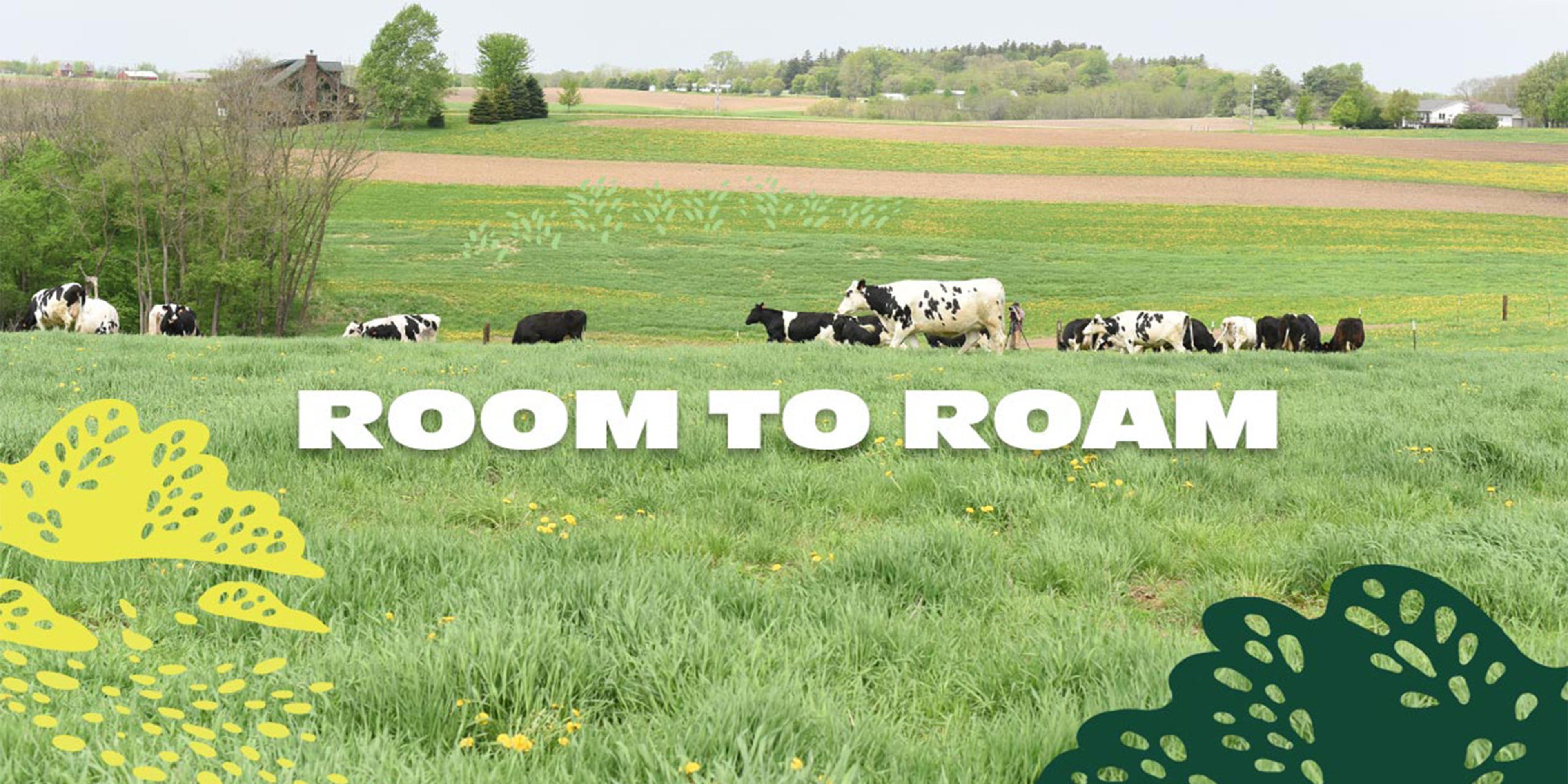
Farming
The Importance of Supporting Small Organic Family Farms
About 35 years ago, a group of farmers got together to find a way to provide a sustainable pay price to organic farmers who produce food without the use of harsh chemicals. From seven founding farmers in 1988 with a hope and a dream to more than 1,600 small organic family farms across the country today — this is Organic Valley.
Saving small organic farms is still at the forefront of Organic Valley’s mission. Along with providing a stable pay price, there are numerous ways organic farms have been shown to provide significant economic, environmental and health benefits to local communities and beyond. (And if you ask the cows, we are pretty sure they would agree that the attention they get on a small family farm is beyond comparison!)
In the last 10 years, more than 100,000 U.S. farms have been lost, according to the U.S. Department of Agricultural National Agricultural Statistics Service.
“The landscape is going to change drastically if we don’t take care of the small family farms,” said George Osgood, Organic Valley farmer-member.

A walk on the Mehuren farm in Maine.
Economic Benefits of Small Organic Family Farms
Community is of utmost importance to Organic Valley farmer Tim Kline. He farms with his family in Ohio and sees how the farms impact small businesses in his area including a hardware store, blacksmith and the local grain elevator. Each of those businesses impact other local goods and services in the community. All the businesses are dependent on farms and each other. He knows if he gets in a pinch, those business owners will be there to help him out.
Research shows that small farms help maintain rural populations and support rural economies.The myriad of economic benefits that small family farms offer led the National Institute of Food and Agriculture to declare, “Family and small farms are vital to our economy and well-being as a nation.”
Organic farming is about more than growing food; it’s about working alongside neighbors and having a positive impact on local communities with job creation, increased household income, and decreased poverty rates that have a lasting impact on rural areas.

The Allen organic family farm in Vermont.
Environmental Benefits of Small Organic Family Farms
Concern for the environment is one of the main reasons consumers choose organic products.
USDA organic guidelines require that certified organic foods are produced without chemical pesticides and fertilizers, and processed without industrial solvents or synthetic food additives, and that animals are never given feed with antibiotics or synthetic growth hormones. Following these strict guidelines for soil quality, crop rotations and pest and weed control have a significant positive impact on the environment.
Organic farming has been shown to reduce pollution, decrease soil erosion, conserve water, boost biodiversity, improve soil fertility and fight the effects of climate change.
“We have a deep, deep relationship with the land,” Kline said. “We nurture it because we understand if we ruin it, it will not provide for us anymore.”

The Peters organic family farm in Wisconsin.
Organic farms have an average of 8 inches more topsoil than conventional farms — but it’s not just the amount of topsoil that matters. Healthy soil has some serious super powers. Converting 10,000 medium-sized farms to organic production would sequester carbon in the soil equivalent to taking 1.2 million cars off the road or reducing car miles driven by 14.62 billion.
Organic Valley is working to reduce emissions, create silvopasture and become carbon neutral. Commitments like these, adopted on a wide scale, can have major environmental impacts.
Rodale Institute conducted a Farming Systems Trial that collected 30 years of data comparing organic and conventional farms and found that conventional farms produced 40% more greenhouse gases than organic farms — and it all starts with a commitment to organic production.
Health Benefits of Small Organic Family Farms
Organic foods aren’t just good for the economy and the environment; they have broader impacts to community health.
More than 700 chemicals are allowed in conventional agriculture, which means that switching to an organic diet could help you avoid exposure to hundreds of insecticides and herbicides.
Organic Valley farmers strive to produce quality food, and that commitment starts with the soil. Organic soil is high in organic matter and supports biodiversity, which is good for the health of the planet. Healthy soil helps create a vibrant, diverse ecosystem in communities across the country.
The USDA Organic seal that is found on all Organic Valley products means no GMOs, antibiotics or toxic chemicals were used; it’s just delicious food grown in harmony with nature.

Organic Valley dairy farm herd sizes average less than 80 cows.
Animal Welfare Benefits of Small Organic Family Farms
Organic Valley farmers make animal welfare a top priority. In addition to complying with USDA standards that require animals are fed organic feed, receive access to pasture during the grazing season, never receive added growth hormones and have access to safe, clean, cage-free living conditions.
Organic Valley producers take animal care to the next level. In addition to meeting USDA rules and co-op standards for the amount of time cows spend on pasture, Organic Valley dairy farmers maintain small herds with an average of 80 cows. The national average for dairy herd size is more than 3.5 times that. And Organic Valley farms often offer extras for cows like rotating brushes for scratching, chiropractic care and even live music.

The Christianson organic farm in Wisconsin.
We believe that when animals have plenty of space and fresh air and are raised in conditions that suit their natural behavior, they are happy and healthy.
Supporting Small Organic Family Farms Is Important
Small organic family farms do more than produce delicious, nutritious foods; these operations have a positive impact on people, animals and the planet.
The next time you go to the supermarket, feel confident that your Organic Valley purchases are making a difference.
Want to “meet” some of the farmers who own the cooperative and are dedicated to producing quality organic products on small family farms? Find a farm in your area by clicking here.
Jodi Helmer is a freelance writer whose work has appeared in magazines like National Geographic Traveler, American Way and Hobby Farms. She never turns down a chance to spend the night on a farm, especially if there is an opportunity to snuggle a sheep or caress a cow.
Related Articles
- Tags:
- working together,
- animal care,
- farm life,
- land stewardship & conservation,
- making an impact


















